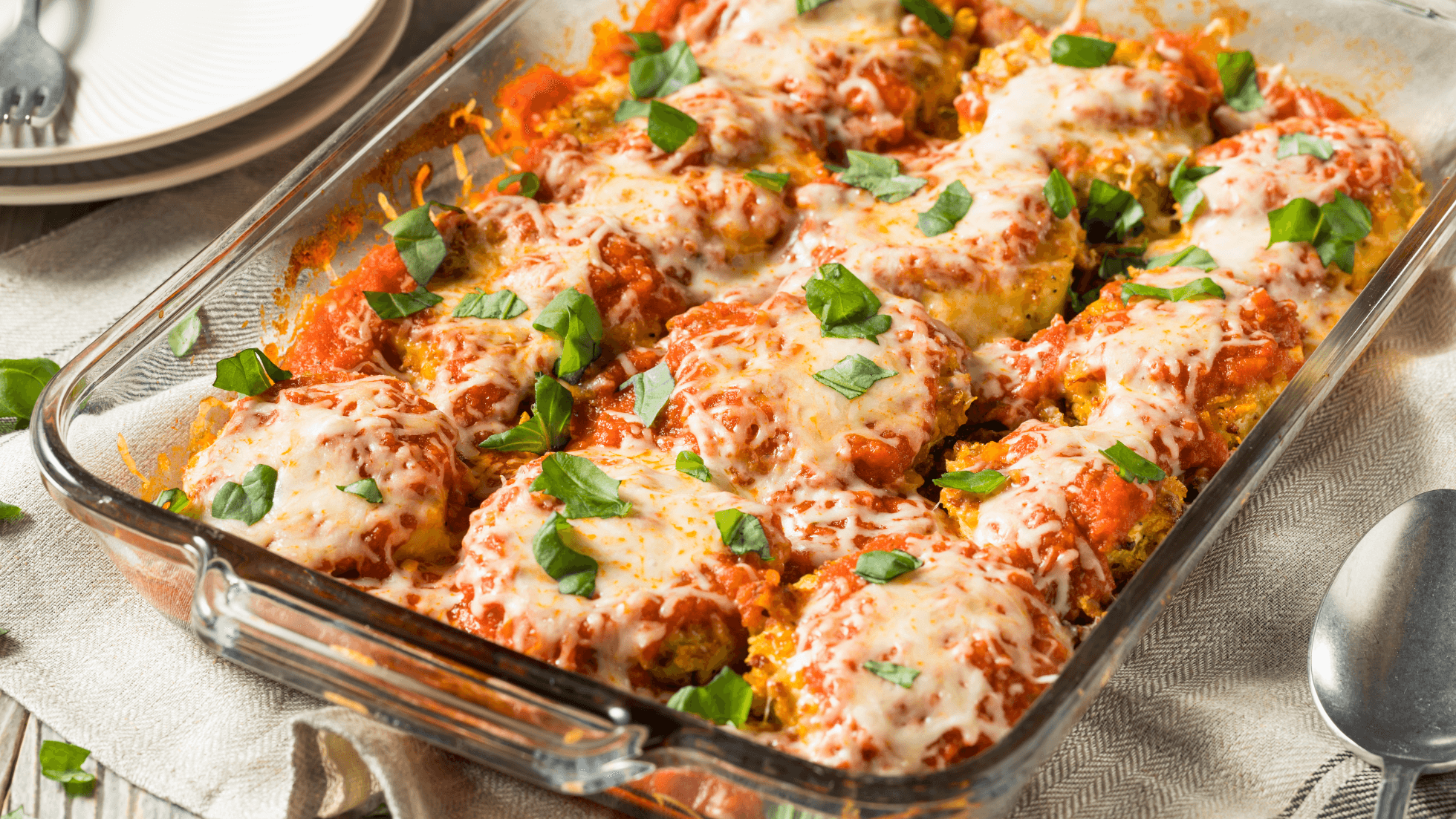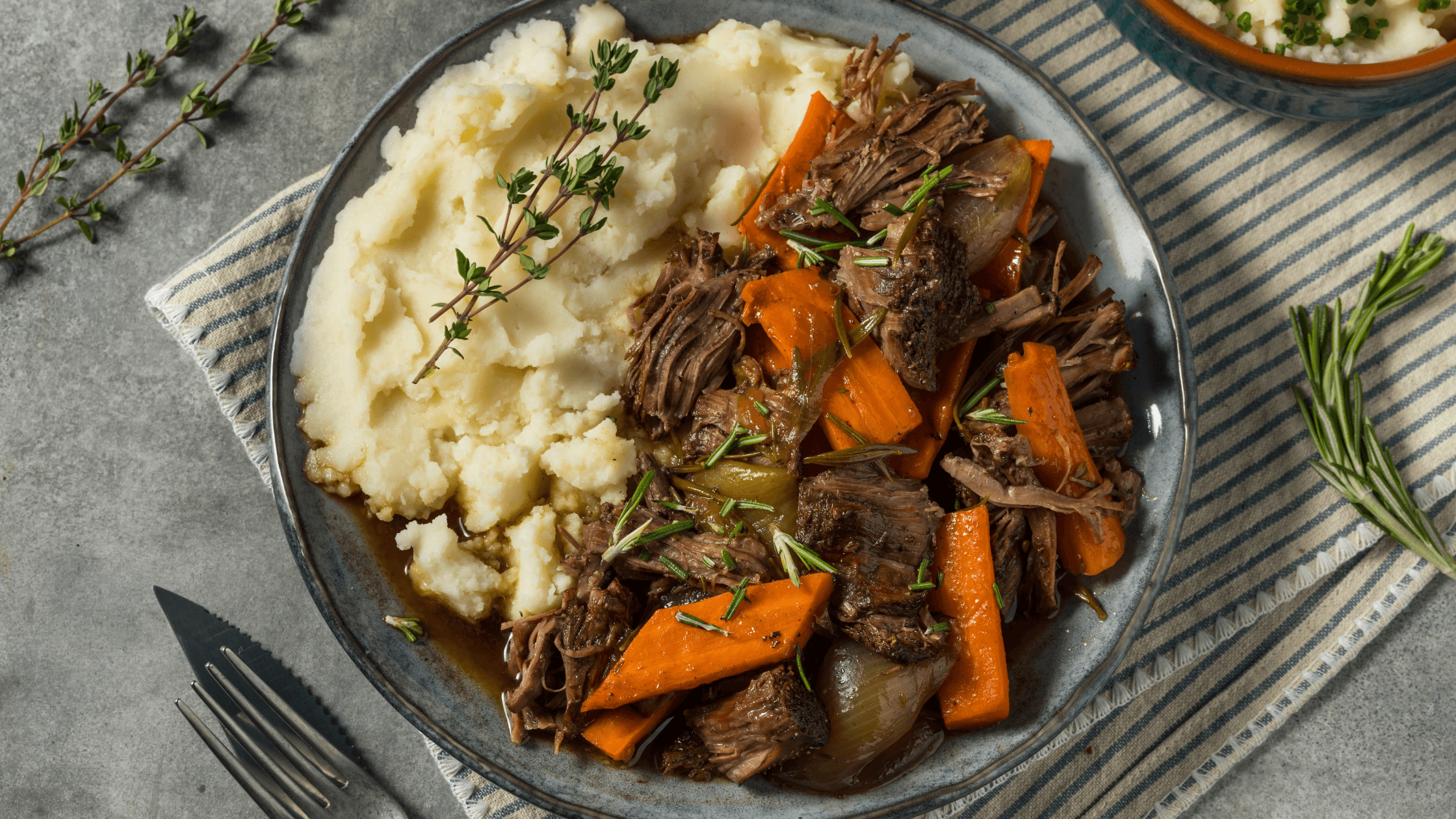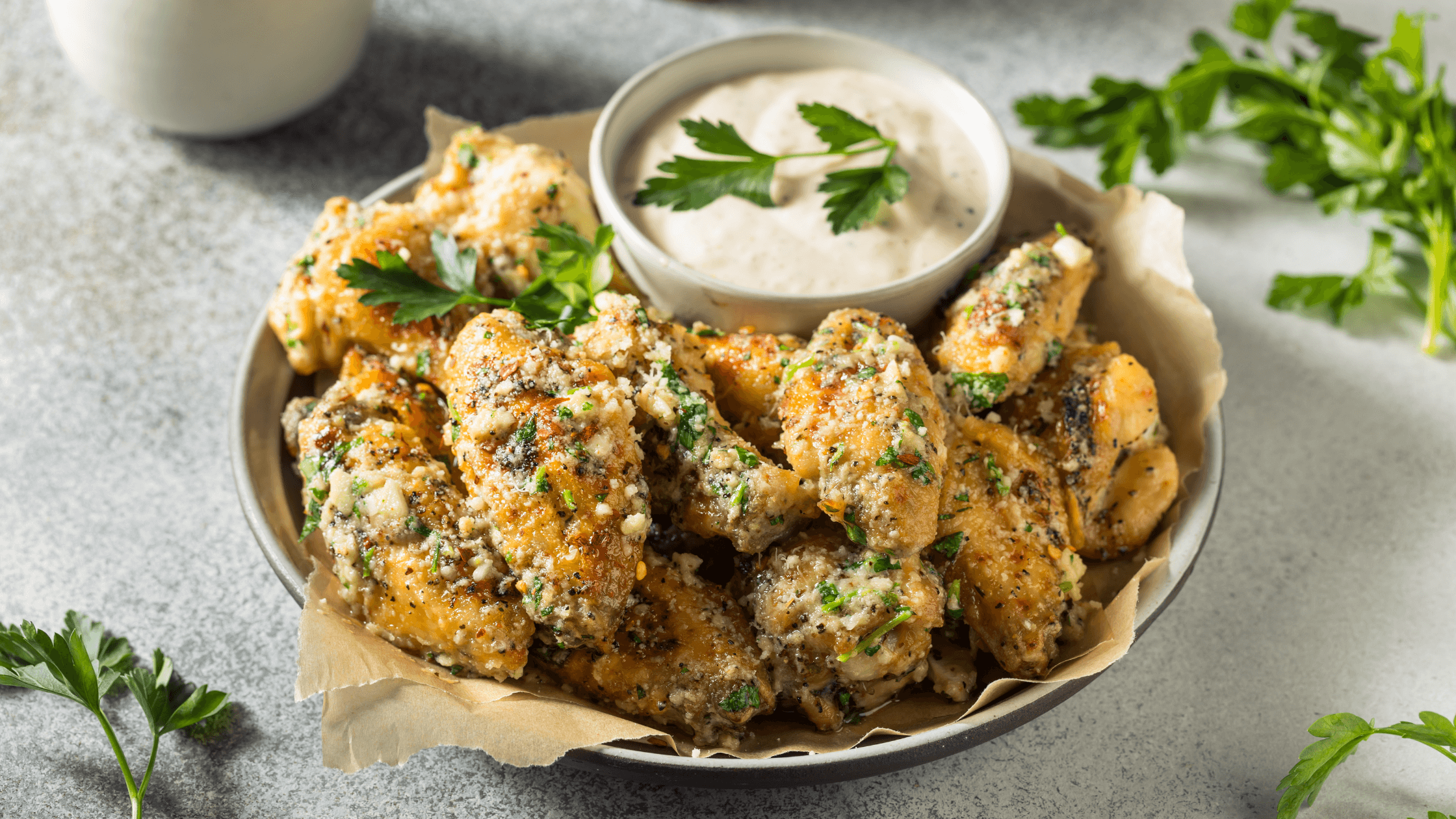Everyone gets gassy from time to time, but if you're constantly gassy at night, several diet and lifestyle factors could be the culprits. From drinking carbonated beverages and eating too quickly to eating fermentable carbohydrates, there are countless reasons you might be feeling gassy towards the end of the day.
If you're wondering how to get rid of bloating and how to stop being gassy at night, read on. We'll explore the top causes of nighttime bloating and practical tips for managing it.
Is It Normal to Feel Gassy at Night?
First things first: Everyone feels gassy from time to time, especially towards the end of the day after you've eaten an entire day's worth of food. In fact, according to the Cleveland Clinic, it's completely normal to pass gas anywhere between 14 and 23 times a day! However, if your nighttime gas is accompanied by abdominal pain, bloating, distension, or changes in bowel habits, it may be a sign that something is not quite right.
Common Causes of Nighttime Gas
There are many potential causes of nighttime gas, including eating habits and lifestyle habits. Here are some of the most common.
Eating Too Late or Too Much at Dinner
Eating too late or eating a large dinner means your body may not have enough time to fully digest the food before you go to sleep. It typically takes several hours for food to move through your digestive system. While some animal studies have shown that late-night eating can affect gut motility, there's limited data regarding the effects of eating later in the day in humans. Still, eating a large meal late in the day means that food may remain in your digestive tract when you lie down to go to sleep, which could interfere with the muscle contractions needed to propel food through your digestive system (known as peristalsis).

High-FODMAP or Gas Producing Foods
Certain foods lead to the production of more gas than others. This is why it can be hard to digest broccoli and garlic, as well as certain whole grains, dairy products, fruit juice, and legumes. These high FODMAP foods get fermented by your gut bacteria, producing gas. For people with a FODMAP intolerance, such as those with irritable bowel syndrome (IBS) or lactose intolerance, this can lead to abdominal pain, bloating, and changes in bowel movements.
Drinking Carbonated or Alcoholic Beverages
Carbonated beverages, such as soda and sparkling water, introduce air bubbles into the digestive tract, which can lead to the production of more gas. In addition, alcoholic beverages can cause inflammation of the digestive tract, which may worsen gas. That's why alcoholic drinks made with carbonated mix frequently trigger gas and bloating.

Eating Too Quickly or Swallowing Air
When you eat fast, you can swallow air (a phenomenon known as aerophagia). This can lead to gas production and bloating.
Gum, Sugar Alcohols, and Artificial Sweeteners
Chewing gum regularly may cause you to swallow air, which can cause more gas to accumulate in your digestive system. Additionally, many sugar-free foods and gums contain artificial sweeteners and sugar alcohols that can cause excessive gas and bloating when they get fermented by your gut bacteria.
If you find that artificial sweeteners cause stomach pain and gassiness, try chewing gum that contains low FODMAP sweeteners. While you may still swallow some air while chewing, choosing gum with low FODMAP sweeteners may lead to reduced gas production.
Stress and the Gut-Brain Connection
The gut and the brain are highly interconnected, constantly communicating with each other throughout the day via the gut-brain axis. However, factors such as stress and poor sleep can disrupt this communication, leading to gastrointestinal symptoms like gas and bloating.
Hormonal Changes and Menstrual Cycles
Hormonal fluctuations throughout the menstrual cycle can affect digestion. Progesterone in particular slows down gastrointestinal motility (the movement of waste through the digestive tract). Since progesterone levels peak before your period starts, you may find yourself becoming constipated and experiencing increased gas in the days leading up to your period. Increased progesterone levels also explain why many people become constipated during pregnancy.
Research also shows that people with IBS or IBD experience changes in gut symptoms throughout their menstrual cycle. For example, people with IBS have been found to experience constipation more frequently during the luteal phase.
Constipation or Sluggish Digestion
Most people in the United States don't even come close to getting the recommended 25 to 40 grams of fiber daily. This can lead to constipation and sluggish digestion. As stool sits in your large intestine, it gets fermented by your gut bacteria, leading to gas production. If you haven't had a bowel movement all day, you may be more likely to become gassy at night due to this bacterial fermentation of stool.
Tips to Reduce Nighttime Gas
Fortunately, while many different factors can cause nighttime gas, there are also plenty of simple strategies you can use to get rid of it.
Eat Earlier in the Evening
One of the simplest ways to reduce nighttime gas is to ensure you eat your last meal a few hours before going to bed. This gives your body plenty of time to start digesting your meal so it's not sitting in your stomach causing discomfort all night. Eating small, frequent meals throughout the day instead of only a few very large meals may also be beneficial.
A bonus? If you struggle with heartburn, eating dinner at least three hours before bedtime can also help reduce acid reflux by preventing stomach acid from moving into your esophagus.
Eat Slowly
Eating slowly and mindfully can help you avoid swallowing air, which in turn can reduce excess gas. Try to avoid distractions like TV or scrolling on social media, and instead consume foods with intention. Pay attention to the textures, aromas, and flavors to help you slow down and enjoy your food.
Stick to Low-FODMAP Meals Later in the Day
FODMAPs are short-chain carbohydrates that aren't fully digested and instead get fermented by your gut bacteria, which can increase gas in your large intestine. For individuals with food sensitivities, such as FODMAP intolerance, this can lead to bloating and abdominal pain 4-8 hours after a meal. If you're struggling with bloating in the evening, consider sticking to low FODMAP meals at night and possibly even during lunch.
Limit Gassy Drinks and High-Fat Foods
Carbonated drinks, such as soda and sparkling water, introduce more air into the digestive system by way of carbon dioxide, which can lead to gas pains and bloating. Try swapping carbonated drinks for bubble-free beverages like tea or still water to reduce the accumulation of intestinal gas.
In addition, high-fat foods can slow down digestion, leading to the production of gas. Try limiting fried foods, such as fries, fried chicken, and onion rings, as well as fast food to see if this relieves your evening gas.

Eat Enough High Fiber Foods
A high fiber diet that includes foods like whole grains, legumes, fruits, vegetables, nuts, and seeds can help prevent constipation. Since constipation can worsen gassiness, eating enough fiber throughout the day is crucial to keeping your digestive system running smoothly.
If you're not sure whether you're eating enough fiber, try keeping a food journal for a few days to see if you're meeting the recommended intake. If you learn your fiber intake is pretty low, aim to include at least two servings of vegetables at each meal. If you're still struggling to meet your fiber requirements through food alone, you may want to consider dietary supplements like psyllium husk to boost your intake.
One important note: Don't eat too much fiber all at once or increase your fiber intake too quickly, as this can lead to excessive intestinal gas. It's also important to drink plenty of water, which helps waste move through the digestive tract.
Walk After Meals or Gently Move Your Body
There's a reason fart walks have taken social media by storm for people experiencing gas-related complaints! Taking a short walk after eating can help with gas clearance, which may help relieve the abdominal pain and bloating that occurs when gas builds up in the large intestine.
If you live in a place where it's too hot or cold to go for a walk after eating, consider trying some gentle yoga poses, such as child's pose or wind-relieving pose, to help with passing gas. If you're struggling with workout bloating, try switching to low-to-moderate intensity workouts, as high-intensity workouts, such as running, may worsen digestive symptoms.
And if movement after a meal isn't an option, you can try gently massaging or applying a hot water bottle to your abdomen, which studies have shown can help with constipation. Since constipation can lead to gas production, relieving constipation is a key factor in reducing excess gas buildup.
Manage Stress with Wind-Down Routines
Several studies have linked chronic stress with digestive disorders like IBS and IBD. If you find that stress is negatively impacting your digestion, try some of the following strategies to calm your gut-brain connection:
- Deep belly breathing: Slow, deep belly breaths (known as diaphragmatic breathing) can activate the parasympathetic nervous system, helping your body relax and shift into "rest and digest" mode.
- Meditation: Even just a few minutes of mindfulness meditation can reduce stress.
- Connect with loved ones: Talking to a friend or family member can reduce feelings of stress and anxiety, which may help relieve gut symptoms.
- Spending time in nature: Natural environments have been shown to lower stress and support overall health.
- Listen to calming music: Soothing music can help regulate your nervous system and reduce stress.
If stress is still impacting your physical and mental health after trying these strategies, consider reaching out to a trained psychotherapist for support. Research shows that cognitive behavioral therapy (CBT) has beneficial effects on IBS symptoms, like gas.

When to Talk to a Doctor
While evening gas can be totally normal, it's important to seek medical help if symptoms are persistent, painful, or coupled with other symptoms. Here are some symptoms that should prompt a visit to your healthcare professional:
- Persistent or painful gas that does not improve with dietary changes or over-the-counter treatments like Gas-X.
- Bloating that worsens over time or is accompanied by visible abdominal swelling (distension).
- Gas with unintended weight loss, fatigue, or changes in appetite.
- Blood in your stool or tarry, black stools.
- Frequent diarrhea or constipation.
- Nocturnal bowel movements (waking up at night to have a bowel movement).
- Difficulty falling asleep due to excessive gas or abdominal pain.
- Nausea, vomiting, or fever alongside gas and bloating.
- New or worsening symptoms that appear suddenly.
These symptoms may indicate an underlying condition like inflammatory bowel disease, celiac disease, or colorectal cancer, and it's important to get them checked out.
Try Digestive Support for Extra Relief
If you're experiencing nighttime gas and are interested in expanding dietary choices rather than limiting foods high in fermentable carbohydrates, digestive enzymes for gas and bloating can help. Digestive enzymes, such as those found in FODZYME, break down FODMAPs, including lactose (which can be an issue for people with lactose intolerance as well as people with IBS), GOS, and fructans, before they reach your digestive system. This helps promote smoother digestion with reduced gas and abdominal discomfort. Try FODZYME today!

